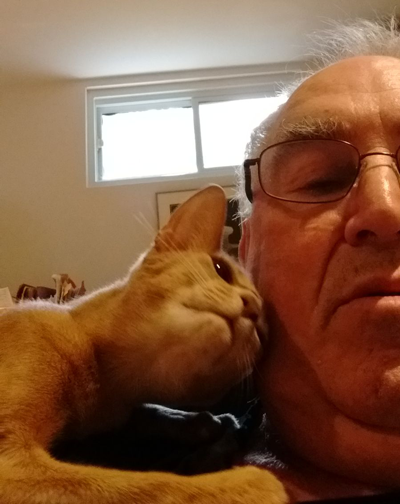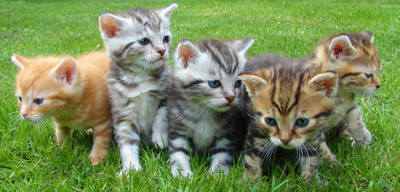 For the 6 months that I have not been able to drive because of medical reasons I have become a regular user of Uber. I find Uber more flexible and convenient than standard taxis. As regular users of Uber services know, many of the drivers are originally from elsewhere, by which I mean overseas and came as immigrants or refugees.
For the 6 months that I have not been able to drive because of medical reasons I have become a regular user of Uber. I find Uber more flexible and convenient than standard taxis. As regular users of Uber services know, many of the drivers are originally from elsewhere, by which I mean overseas and came as immigrants or refugees.
To anyone that knows me well, my interest in people and their stories plays a prominent role in my modus operendi. Also following many years of travelling overseas as part of my work as an academic geriatric medical specialist, I have learned that there are many interesting stories and points of view to be gleaned from taxi drivers. So it has come to pass with my multiple Uber trips. The point of initiation of engagement is if I recognize an accent and ask the driver from where he came. They often ask me to guess, but I have already had a hint by the Uber app which provides the name of the driver. If it is one of the typical names and the accent fits I may venture to say something like, "the Middle East or Former Soviet Union or Ireland". If I am close or correct I am usually complemented on my guess, with a question such as "do you know my country" which if positive opens the door to the conversation.
Because I have travelled a good deal during my medical school education in Scotland which at the time afforded me may months of free time to travel, sometimes combined with a medical elective experience in the country I was visiting, but also a chance to pick up some of the language, friendships with local residents and a travel experience—which often resulted in friendships some of which are still operative. I also witnessed historical moments like the coup in Greece during the 1960s, the build up to the Six-Day War in Israel and the vote that ousted the regime in Argentina that replaced the prime minister with Carlos Menem who shook the economy with economic reforms. I was in Argentina with my teenage son for a geriatric conference during the time of the election that brought Menem to power and we witnessed the hundreds of police officers patrolling the streets of Buenos Aries, with a favorite hangout of the blue uniformed police being the McDonalds in the Centre of the city on the Avenue de Mayo.
The driver answered, "Turkey-Istanbul, do you know it?" To which I replied with unbridled enthusiasm, "Yes I do, have been there and loved it." He turned towards me in the passenger seat and smiled. "It is a beautiful city". I followed with the question, "do you know the movie Kedi" He turned toward me with a huge grin, "it means cats" to which I acknowledged, "I love cats, we have three Abyssinians in the house and a number of feral cats in our backyard—three consisting of a mother and two of her litter that have adopted us or maybe allowed themselves to be adopted by my wife who diligently feeds and speaks to them. The bond is so close that we have purchased a number of cat shelters for them to increase their comfort which is helped by straw we bought from one of my wife's students who comes from a rural community outside of Toronto. Besides dry cat food many of her friends give her wet food that they have accumulated from their own cat adventures—we try to get them neutered and receive their vaccinations with the clipped ear being evidence that they were caught for this purpose before being released back to their feral home.
 The driver and I talked about the wonderment of cats and how they are part of Istanbul life. To observe the seven cats and their litters featured in the movie was a real joy, with the film starting with a picture of kittens waiting for their mamma to return with breakfast—their tiny heads peering through the railing surrounding the birth site. The clips of the cat who ventures to the fish market every morning where the local fishmonger prepares the remnants of the carved fish for the dependable visitor as if it were a guest coming for dinner. Among the most moving scenes were that of people whose lives were either impacted or even saved by their feline companion who through the special sense that cats have of responding to human need.
The driver and I talked about the wonderment of cats and how they are part of Istanbul life. To observe the seven cats and their litters featured in the movie was a real joy, with the film starting with a picture of kittens waiting for their mamma to return with breakfast—their tiny heads peering through the railing surrounding the birth site. The clips of the cat who ventures to the fish market every morning where the local fishmonger prepares the remnants of the carved fish for the dependable visitor as if it were a guest coming for dinner. Among the most moving scenes were that of people whose lives were either impacted or even saved by their feline companion who through the special sense that cats have of responding to human need.
One moving clip was of a fisherman whose adopted cat helped the small fishing boat captain deal with depression and loneliness, would roam the boat as it churned through the Bosphorus, acting like the queen of the sea as the captain beckons it for a pat. More devotion from an animal towards a human cannot be found—it is unfair to categorize the cat as a pet, it is more like a friend, companion and loved one.
We reached my destination, but not before sharing our common bond in the love of cats and their deserved place in the hearts of mankind—the Turks of Istanbul have done it, we should be able to emulate their devotion and bring the feline joy to our communities and individual families.
